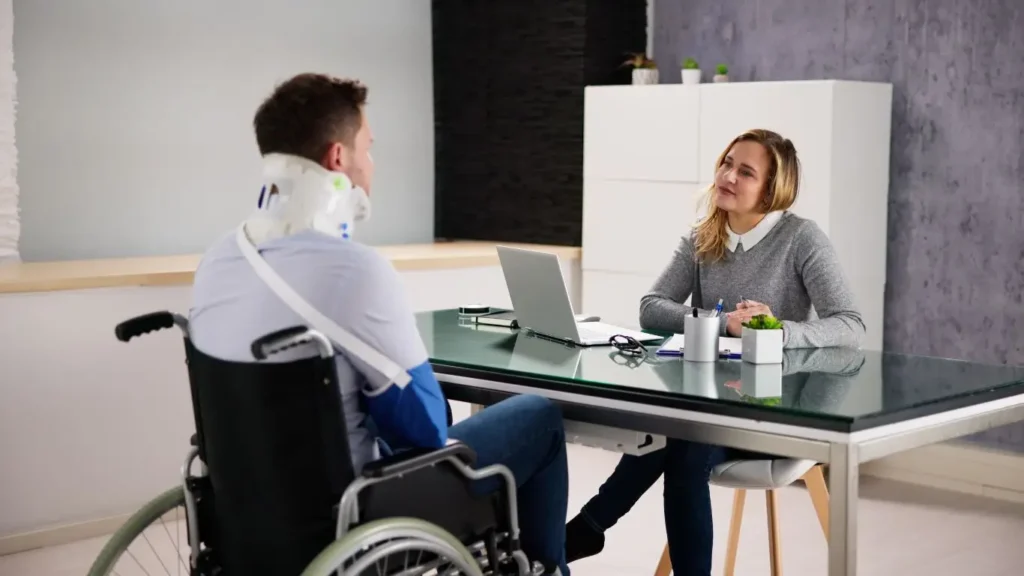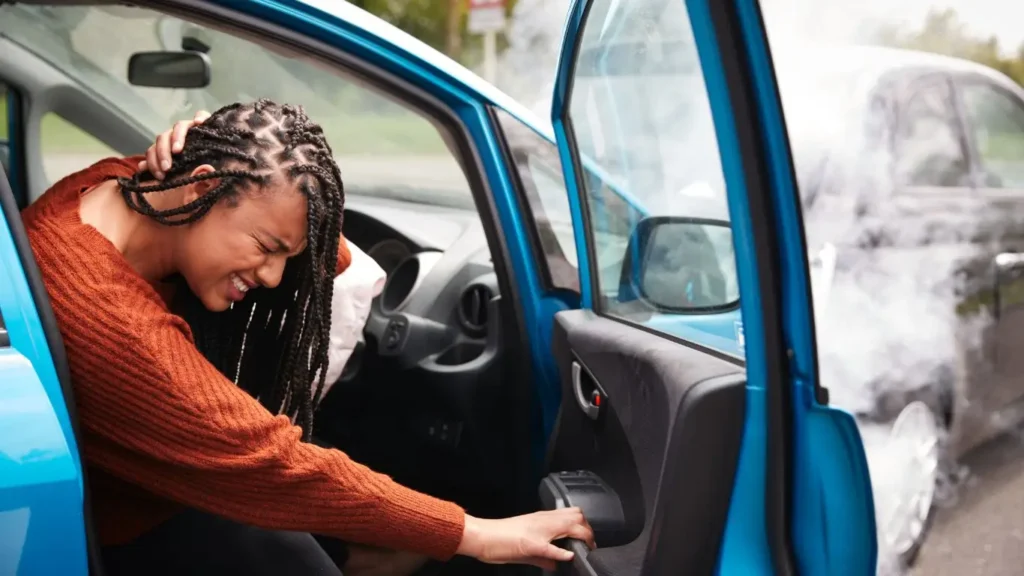When purchasing auto insurance, many people have questions about Personal Injury Protection (PIP). This insurance not only covers your medical expenses, but it also helps ensure your protection, whether you live in a ‘no-fault insurance state’ or an ‘at-fault state’.
In this blog, we will give you detailed information about the importance of “Personal Injury Protection”, its coverage, limitations, and claim process. If you want to understand your insurance options and select the right coverage, this guide is for you. Keep reading!
What Is Personal Injury Protection (PIP)?

Personal Injury Protection (PIP), also called “no-fault insurance,” is an auto insurance coverage that covers medical expenses, lost wages, rehabilitation costs, and funeral expenses after an accident.
This insurance ensures financial protection for you and your co-passengers, regardless of who is at fault. The main objective of PIP is to provide quick financial assistance after accidents and to simplify lengthy claim processes.
This insurance is especially necessary in states where the no-fault insurance system is in place. This is extremely useful for your financial stability and mental peace.
The main objectives of PIP are:
- Covering medical expenses: doctor’s fees, hospital bills, cost of medicines, etc.
- Compensation for lost wages: Loss of income caused by being unable to go to work due to an accident.
- Rehabilitation expenses: The cost of post-accident therapy or recovery procedures.
- Funeral Expenses: Funeral costs in unfortunate situations.
Why is PIP important?
This insurance provides you with benefits in a system where “No-Fault Insurance” applies.
This ensures that you get immediate financial assistance after an accident, whether you were at fault or not.
Difference between PIP and general auto insurance
- Normal auto insurance only covers damages caused to third parties, while PIP cover covers your personal expenses and the expenses of co-passengers as well.
- PIP’s coverage is not limited; This is helpful for both health care and income protection.
Does PIP only apply in some states?
Personal Injury Protection (PIP) is only applicable in states that follow a no-fault insurance system. This includes states like Florida, Michigan, New York, and New Jersey, where PIP insurance is mandatory by law.
In these states, PIP is required to provide quick financial assistance to victims after an accident, no matter who is at fault. This insurance covers medical expenses, lost wages, rehabilitation costs and funeral expenses.
In states that do not follow a no-fault system, PIP may be optional, but it is beneficial for safety.
What Does Personal Injury Protection Cover?
Personal Injury Protection (PIP) covers medical expenses, hospitalization, prescription drug costs, rehabilitation services, and lost wages after accidents. Additionally, it covers funeral expenses and provides financial assistance to the family of the deceased. This cover ensures instant financial protection, no matter who is at fault.
Medical Expenses and Hospitalization
Personal Injury Protection insurance is designed to cover medical expenses after an accident. This covers doctor’s fees, hospitalization, cost of medicines, and other essential health services. This cover provides protection to both the driver and co-passengers of the vehicle who are injured in an accident.
Additionally, PIP cover also helps you meet the costs of rehabilitation services, such as physical therapy or mental health counselling. This insurance ensures quick financial assistance regardless of who is at fault in an accident.
Funeral Expenses and Survivor Benefits
In unfortunate situations, where the accident proves to be life-threatening, personal injury protection cover covers the costs related to the last rites. This includes cremation, funeral services, and other related expenses.
Additionally, PIP insurance provides financial assistance to survivors, including financial support for the deceased’s family. This benefit is especially helpful when the breadwinner of the family dies in an accident.
What Isn’t Covered by PIP Insurance?
Personal Injury Protection (PIP) insurance does not cover certain expenses, such as vehicle repairs, emotional distress, intentional accidents, and expenses outside the policy limits.
This insurance is limited to medical expenses, lost wages, and rehabilitation costs only. Claims such as vehicle damage or pain and suffering require a separate insurance policy. Contact your insurance provider for correct information.
Expenses not Covered by PIP Policy
Personal Injury Protection (PIP) insurance covers a wide variety of expenses, but it has some limitations. Here is a list of expenses not covered under a PIP policy:
- Vehicle Damage: PIP insurance does not cover the cost of repairs or damage to your vehicle. This requires separate comprehensive or collision insurance.
- Pain and suffering: PIP does not cover claims related to emotional distress, mental trauma, or pain.
- Claims against wrongdoing: If a person causes an accident intentionally, PIP insurance does not provide coverage for it.
- Expenses beyond the limit: Expenses in excess of the limit specified in the policy are not covered under PIP.
Common Misconceptions About PIP Coverage
There are often misconceptions about PIP insurance. Let’s clarify these:
- PIP covers everything: This is not true. PIP only covers specific things like medical expenses, lost wages, and rehabilitation costs.
- It’s required in every state: PIP is only mandatory in states that follow no-fault insurance systems.
- It also covers vehicle damage: This misconception is common, but vehicle repairs require a separate insurance policy.
What Is a No-Fault Insurance State?
No-fault insurance states are states where insurance companies cover medical expenses and damages after an auto accident, regardless of who is at fault.
In this system each individual receives coverage under his or her own policy, thereby reducing lawsuits and legal delays. This ensures quick financial assistance and does not allow the insured to depend on fault determination.
Overview of No-Fault Insurance Systems
No-fault insurance system is a system where insurance companies cover the medical expenses and damages of each driver and passenger after accidents, regardless of who is at fault. This system is especially implemented in states where the law seeks to reduce lawsuits and delays associated with accidents.
Main Benefits:
- Instant Payment: Without the need for lengthy legal processes.
- No fault determination required: Medical expenses and other benefits are paid directly to the insured.
- Reduction in legal expenses: Due to fewer lawsuits.
How No-Fault States Handle PIP Coverage
Personal injury protection (PIP) coverage is mandatory in no-fault states. These states require every driver and passenger to have a minimum of PIP coverage to easily cover medical expenses, lost wages, and rehabilitation costs after an accident.
Rules for PIP coverage in no-fault states:
- Every person gets coverage for his or her own medical costs.
- The insured is not dependent on the other party for compensation on the basis of fault.
- There are specific minimum coverage levels set, which may vary depending on state law.
At-Fault States and Personal Injury Protection
In at-fault states, personal injury protection (PIP) is mandatory in some cases, while in others it is optional. In mandatory states, all vehicle owners are required to purchase a minimum of PIP coverage. In alternative states, drivers can choose PIP cover according to their needs and financial security.
Where PIP is Mandatory
Some at-fault states mandate personal injury protection (PIP). This means that vehicle owners are required to purchase a minimum amount of PIP coverage. These states want everyone to get immediate financial assistance after an accident, no matter who was at fault. Reasons for this mandatory coverage:
- Injured individuals receive compensation for medical expenses and wages faster.
- There is less need for litigation in court.
- The insured does not have to depend on another party for their medical expenses.
Where PIP is Optional

PIP coverage is optional in some at-fault states. This means that vehicle owners can opt for it, but are not required to purchase it. This situation occurs when state laws only require minimum liability coverage, but do not mandate PIP.
- Here the insured can select PIP coverage based on their need and financial situation.
- Drivers who do not take PIP face greater personal liability for medical expenses and lost wages after an accident.
- Although PIP may be optional, it can be a beneficial option to ensure economic security.
How Do PIP Insurance Claims Work?
The personal injury protection (PIP) insurance claim process involves filing an accident report, documenting all related medical records and expenses, and submitting the completed claim form to the insurance company within the stipulated time frame.
The insurance company reviews your documents and, after approval, pays eligible expenses. This process is designed to ensure the financial security of the insured.
Timeline and Steps in the Claim Process
There is a precise process to follow for a Personal Injury Protection (PIP) insurance claim, which ensures that your medical expenses and other benefits are paid on time. Here is a general step-by-step guide:
- Immediately After the Accident:
- Report the incident to your insurance provider.
- Document medical records and expenses.
- Filing a Claim:
- Get in touch with your insurance company and submit all the required documents.
- Fill the claim form within the time specified under the policy.
- Claim Review and Approval:
- The insurance company reviews the documents and completes the verification process.
- If all the documents are correct, your claim is approved.
- Get Paid:
- After approval, your medical costs and other eligible expenses are reimbursed directly to you or the service providers.
Common Challenges When Claiming PIP Benefits
Some common difficulties you may encounter when making a PIP claim include:
- Lack of Documents: If you don’t have complete medical records, bills, or police reports, the claims process may be slow.
- Non-Adherence to Deadlines: Missing the claim deadline may result in your claim being rejected.
- Coverage Limits and Disputes: The insurance company can determine which expenses are covered under the PIP policy and which are not. This may give rise to disputes.
- Ambiguity or Incorrect Information: Any type of incorrect information or unclear details may affect your claim, leading to delay in approval.
Conclusion
Personal Injury Protection (PIP) insurance not only protects your medical expenses following accidents, but it also ensures the financial stability of you and your family. By choosing the right coverage you can get peace of mind and financial benefits as per your insurance needs.

